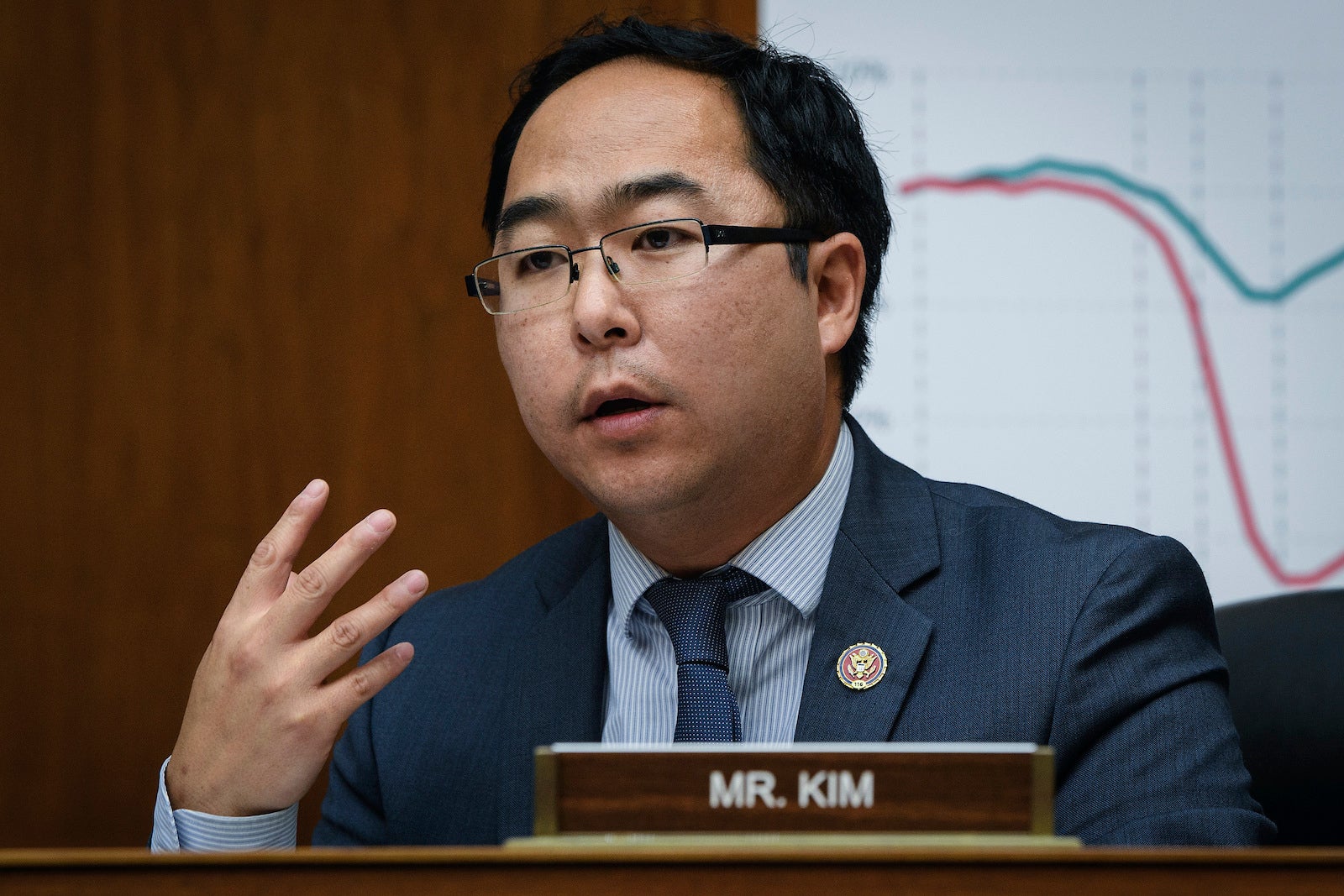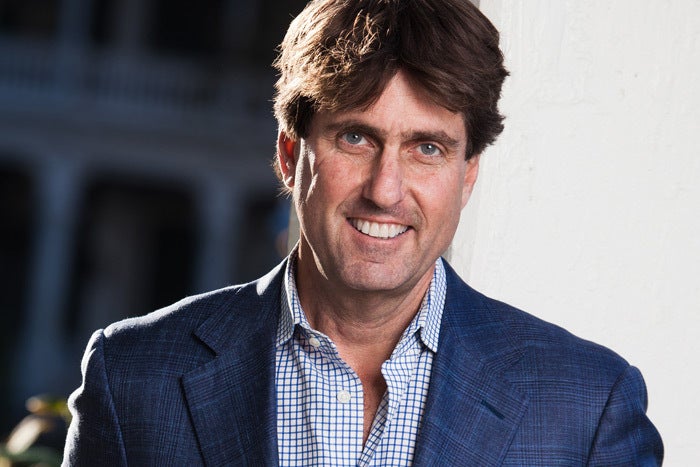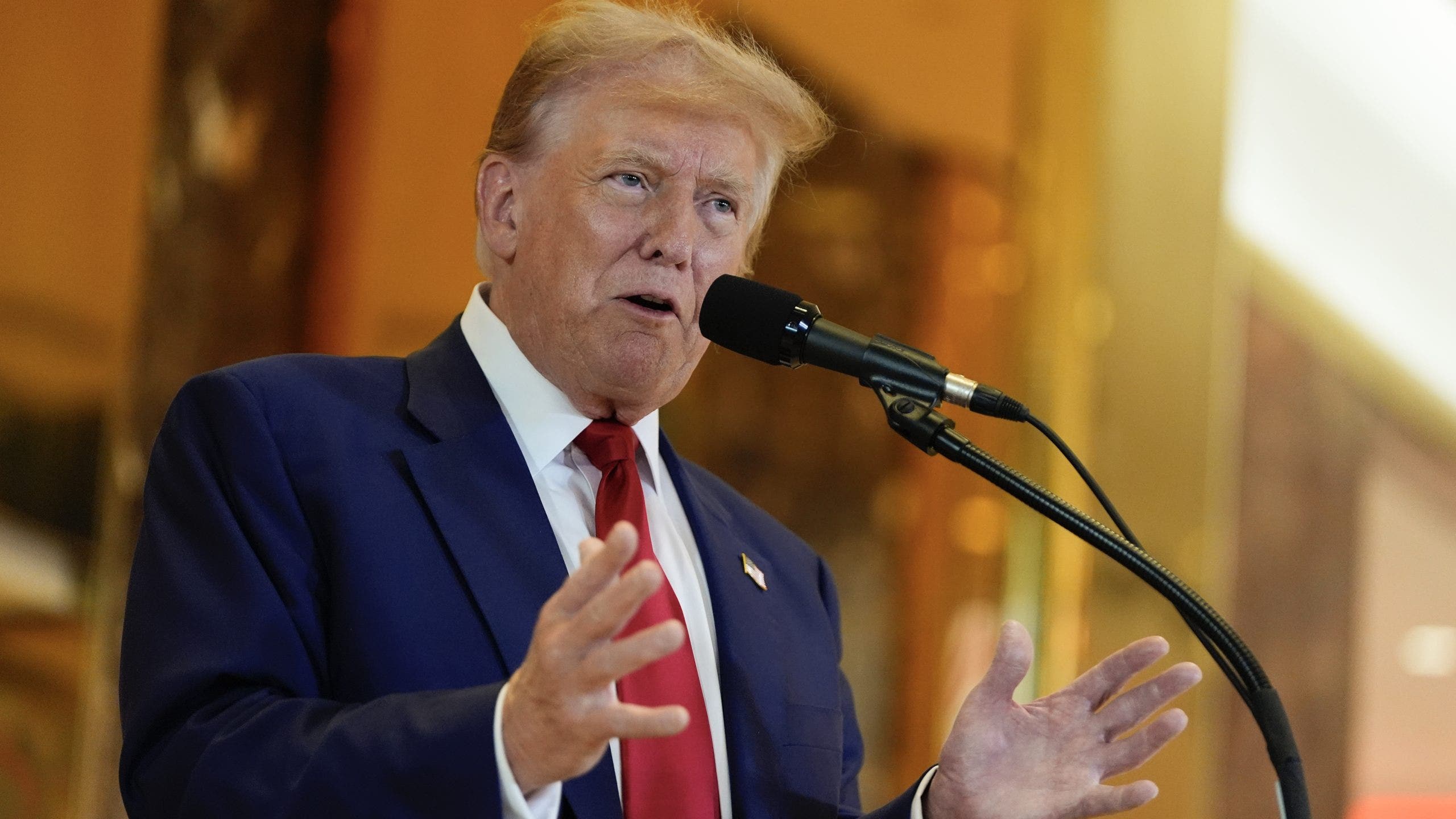New Jersey
Newton hunts for lead pipes in town water system. What homeowners need to know

Here’s what you might find in your tap water
From lead to arsenic to PFAS, what’s lurking in your tap water? Here’s what you need to know about water quality in the U.S.
Just the FAQs, USA TODAY
NEWTON — The town may soon deploy swordfish to search its water lines for lead pipes, as it seeks to remove the hazardous metal from its more-than-century-old water system.
“Swordfish” is the brand name of a device that looks similar to a plumber’s snake used to clear drain clogs. A swordfish, however, has a probing wire tipped with an electrical device that, when it touches the insides of a pipe, can tell whether it is made of lead, copper, galvanized steel or plastic.
High lead levels in drinking water can cause a range of health problems, including lasting damage to brain development in children. Gov. Phil Murphy signed a law in 2021 that requires community water systems in New Jersey to identify all lead service lines, notify the public about their presence and then replace those pipes by 2031.
Newton’s water system owns the water lines that split off its water mains up to the connection to individual property owner service lines. It is those final connecting lines that need to be tested throughout the town, potentially via Swordfish.
Towns, homeowners split responsibility for lead abatement
Those service lines are the responsibility of the individual property owners and could cost from $8,000 to $12,000 per line for replacement, town officials said at Monday’s council meeting, though there is some state money available to defer the costs.
It’s up to the town to identify those lead pipes, however, and officials said Monday that the Swordfish technology could make that process more efficient and less disruptive.
The council has scheduled a public hearing for its May 29 meeting on an ordinance to spend $90,000 for two of the devices. Without them, crews most often need to dig a hole in a lawn or through a sidewalk or road, to get to the connecting lines.
With the Swordfish, the operator can “fish” a wire through a connector box or main and reach a service line. The contacts are engaged and a readout identifies the material in the service pipe. A sample of the inside of the pipe is also taken by the probe and tested.
Hundreds of service lines must be tested
At Monday’s meeting, Town Manager Tom Russo and Town Engineer Dave Simmons briefed the council on their progress and the need for the Swordfish technology. According to figures from manufacturer Electroscan Inc., a single Swordfish unit costs $78,000, plus training. However, two units cost just $90,000 for the pair.
Already, Newtown has identified about 1,000 town-owned service lines, but there are more than 1,700 more to be checked, Russo and Simmons said.
More: EPA announces new drinking water standards. How could NJ water systems be impacted?
Of the 1,000 service lines already investigated, all but 253 contained lead. Some of the branch lines need to be checked as well for the presence of lead piping and 62 of those have been “verified” as lead-free on both sides of the connection.
Water department supervisor Ken Jackel said the average cost to dig an inspection hole is $350 and the town has been using three employees each from the water and sewer department, augmented by DPW employees to do the inspection work now.
Digging up properties
“We have run out of the ‘low-hanging fruit’, said Simmons. “Now, we need to do the field inspections.”
A Swordfish can be operated by 1 to 2 person teams.
In addition to the cost in manpower and time of digging inspection holes, there is the post-inspection issue of replacing landscaping or structures which must be moved to get access to the service line connection. In the more urban section of town, notably along Spring Street, digging also requires jackhammers and refilling the inspection hole with dirt, asphalt or concrete.
There are additional costs as well in areas where the town needs to obtain permits from the state or Sussex County to do work on their highways to access service lines for visual inspection.
Jackel noted that in most locations, crews can access the service line through the property owner’s water meter connection, eliminating the need to dig a hole in a lawn or sidewalk. In some areas, access to service lines can be made at curb-side waterline connection boxes.
The Swordfish apparatus has not been formally approved by New Jersey, but is approved in the states of New York and Pennsylvania. He also noted that the City of Baltimore is using the technology.
There is no prohibition against use of the device in New Jersey, Jackel said, adding, “It’s up to us.”
With the Swordfish units, the department estimated the crews could test 10-20 customers per day. Russo said he would like to get all the testing and inspection done within the next 18 months.
Newton water system dates back to 1895
Newton’s water system dates to 1895 and begins at Morris Lake in Sparta. There is a treatment plant at the dam which creates the reservoir.
The water main follows Sparta Glen Brook then moves underground along Sparta Road. There is only a couple of customers before the main line enters the town and branches out through 10-inch cast iron mains, feeding the branches which then feed individual service lines make connections to users.
After the presentation, the council voted to approve an ordinance which will go to first reading at the May 29 meeting. If approved at that meeting, a public hearing is likely to be scheduled for the June 10 council meeting after which the council could approve the purchase of units.
Email: bscruton@njherald.com Twitter/X: @brucescrutonNJH
412,000

New Jersey
8 N.J. towns among top 150 with most expensive homes nationwide. See full list.

Eight New Jersey towns now rank in the top 150 for most expensive home values in the nation, according to the latest data for April from Zillow.
All of the New Jersey towns on the list had typical home values of more than $2 million.
Deal, a Jersey Shore borough near Asbury Park, ranked 25 in the nation with a typical home value of $3.66 million as of April.
New Jersey
Nurses at three New Jersey hospitals poised to strike over staffing ratios
About 3,000 nurses at three hospitals in New Jersey could soon begin a strike for safe staffing. Contracts expired Friday for 1,500 nurses at Cooper University Health Care in Camden, 800 nurses at Englewood Health in Englewood and 750 nurses at Palisades Medical Center (part of Hackensack Meridian Health) in North Bergen. As of this writing, Health Professionals and Allied Employees (HPAE), the union to which the nurses belong, has not given the hospitals 10 days’ notice that a strike will begin.
The nurses’ main demand is that safe nurse-to-patient ratios be included in their new contracts. More than 90 percent of the nurses at each hospital voted to authorize the strike, which signifies the magnitude of the problem and the workers’ determination to fight.
The developments in New Jersey continue a series of near-unanimous strike votes among US healthcare workers. Inadequate staffing, a long-standing problem that has only been exacerbated by the COVID-19 pandemic, has been the main factor motivating workers’ struggles. Understaffing increases nurses’ workloads, heightens the risk of medical errors, reduces the quality of patient care and contributes to overwork and burnout.
Recent years have seen a wave of early retirements among nurses, as well as an increase in nurses leaving the profession entirely. In New Jersey, nearly one-third of nurses have left bedside care in the past several years, according to HPAE. At least seven of 10 currently employed nurses are considering retirement. Only about half of New Jersey’s 147,000 licensed nurses are working, according to the union.
The contracts at Cooper University Health Care, Englewood Health and Palisades Medical Center are the first healthcare worker contracts to expire in New Jersey since last year’s strike at Robert Wood Johnson University Hospital (RWJUH) in New Brunswick. Debbie White, president of HPAE, said at a recent news conference that the agreement with RWJUH would serve as a model during the current negotiations. This statement is a clear warning that HPAE plans to betray the 3,000 nurses who are poised to strike.
For more than four months, the RWJUH nurses fought bravely for safe staffing and enforceable nurse-to-patient ratios. Finally, the United Steelworkers (USW) presented them with an agreement that established ratios but allowed the hospital to maintain understaffing of 18.5 percent without being penalized. It placed the onus on the already overburdened nurses to fill out safe staffing forms when understaffing exceeded the allowed level. If these criteria were met, then the contract provided for nurses to receive only two or three hours’ additional pay, even if the understaffed shift was 12 or 16 hours long. Under increasing financial pressure, and believing that the USW would not negotiate better terms, the RWJUH nurses ratified the inadequate agreement. “This was not the contract that we wanted,” one of them told the World Socialist Web Site.
Imposing a similar defeat on the 3,000 nurses who are ready to strike would be consistent with HPAE’s record of betrayals. In 2020, White prevented a strike of about 1,200 workers at Jersey Shore University Medical Center (JSUMC) in Neptune. The union also kept these workers divided from those at Southern Ocean Medical Center in Manahawkin, who were also without a contract. Both facilities are owned by Hackensack Meridian Health. HPAE’s opposition to a united fight enabled the company to impose its demands at nurses’ expense. One result is that in 2022, most nurses at JSUMC reported that they wouldn’t feel safe being treated at their workplace.
Instead of waging united struggles, HPAE encourages its members to appeal to Democratic politicians. Like the USW, HPAE is advocating for state legislation that would mandate staffing ratios. It has held rallies in Trenton, New Jersey’s capital, to demand passage of this reform. But such legislation has been introduced in New Jersey’s Senate each year for the past 20 years, only to die in committee. In California, Oregon and Massachusetts, where safe staffing laws have been passed, healthcare systems flout them with impunity.
HPAE knows very well that nurses’ pleas will fall on deaf ears. But because of its intimate relationship with the Democratic Party, it encourages illusions that the latter will respond to workers’ needs. The Democrats’ priority is not providing workplace reforms, but continuing the genocide that Israel is committing in Gaza and the proxy war with Russia that is being fought in Ukraine. As the world’s oldest capitalist party and a trusted agent of Wall Street, the Democratic Party is a party of imperialist war, which is paid for by attacks on the working class at home.
The HPAE’s affiliation with the Federation of Nurses and Health Professionals, which is the healthcare division of the American Federation of Teachers (AFT), makes its integration into the Democratic Party unmistakable. Like President Joe Biden and other Democrats, AFT President Randi Weingarten has smeared students protesting the genocide as antisemitic. But Weingarten had no qualms about traveling to Ukraine in 2022 and shaking hands with genuine antisemites such as Andriy Sadovyi, the mayor of Lviv and an open admirer of Stepan Bandera, who collaborated with the Nazis during World War II. The Democrats rely heavily on Weingarten to suppress opposition within the working class and promote nationalism and war.
White’s recent comments and the history of the HPAE make clear that the union is preparing to betray the 3,000 nurses at Cooper University Health Care, Englewood Health and Palisades Medical Center. They also reveal that these nurses face not only a workplace struggle, but also, and more fundamentally, a political struggle. To wage a determined and effective fight for safe staffing, the nurses will need to establish their political and organizational independence. This will require them to organize rank-and-file committees that they, not the HPAE leadership, control democratically. These committees must also be independent of both capitalist parties.
Rank-and-file committees will enable the nurses to elaborate a winning strategy to fight for their demands. The nurses’ power will be strengthened if they appeal to other healthcare workers, and workers in other industries, for support. A strike at the three New Jersey hospitals must become part of a campaign to remove the profit motive from healthcare and to establish a socialist system that provides the highest quality healthcare to all as a basic right.
Sign up for the WSWS Health Care Workers Newsletter!
New Jersey
Race to watch: A crowded primary to replace Sen. Bob Menendez in N.J.

A little over two months ago, New Jersey’s embattled U.S. Sen. Bob Menendez announced he would not run in Tuesday’s Democratic primary.
But Menendez did leave open the possibility of running for re-election if he is cleared of all charges at his ongoing federal corruption trial.
In the meantime, 10 candidates are on next Tuesday’s primary ballot, including three Democrats, four Republicans, two independents and one Green Party hopeful.
Democrat Andy Kim
The most well-known candidate seeking the senate seat is 3rd District Congressman Andy Kim.
On his website, Kim said New Jersey is where he grew up, adding that he’s fighting for his family, his neighbors, the community that raised him and for working families in pursuit of the “American Dream.”
Kim’s top campaign priorities include affordability, strengthening health care, supporting small businesses, creating jobs and protecting the environment.
He also vows to support veterans and reproductive rights, end corruption in government, toughen gun laws and support LGBTQ+ rights.
Kim has received multiple endorsements from a wide range of groups, including the Communications Workers of America.
Democrat Lawrence Hamm
Lawrence Hamm, the chairman of the People’s Organization for Progress, was born in Newark, New Jersey. He describes himself as a relentless advocate for African Americans, human rights and civil rights for all oppressed people.
Hamm said that, if elected, he will push for universal Medicare, reparations for slavery, affordable housing for all and laws to stop police brutality.
Hamm’s platform also includes efforts to curb climate change, strengthen gun control and voting rights laws, eliminate poverty, end food insecurity, cut military spending, increase the federal minimum wage and increase taxes on big corporations.

Democrat Patricia Campos-Medina
Patricia Campos-Medina was born in El Salvador and came to the U.S. when she was 14.
On her website, she said her parents’ struggles as low-wage workers in the hotel and restaurant industry inspired her to become a policy expert on labor, immigrant integration, voting rights and voter mobilization. She is running to expand opportunities for working-class New Jerseyans, expand educational opportunities for children and strengthen immigration policy.

Republican Curtis Bashaw
Curtis Bashaw is a Cape May businessman and real estate developer.
Bashaw said he’s running because he wants to fight for freedom, opportunity and security for all New Jerseyans.
Bashaw said on PBS’s ”Chat Box” that he has campaigned in all 21 counties. He said inflation is a massive issue, that the country is going in the wrong direction and small businesses must be unshackled from over-regulation to restore opportunity.
Bashaw has also voiced support for law enforcement, border security, personal freedoms and parental rights.

Republican Albert Harshaw
Albert Harshaw is a business owner who grew up in New Jersey and began working at age 14.
On his website, he said he will work on fostering bipartisan collaboration that advances military capabilities, educational opportunities, research initiatives and production capacities.
He also stressed the importance of investing in early education, reentering the space race, strengthening the manufacturing industry, fulfilling international military and diplomatic policies, and strengthening national security and domestic infrastructure.
-

 World1 week ago
World1 week ago€440k frozen in Italy over suspect scam by fake farmers
-

 News1 week ago
News1 week agoRead the I.C.J. Ruling on Israel’s Rafah Offensive
-

 News1 week ago
News1 week agoBuy-now, pay-later returns and disputes are about to get federal oversight
-

 World1 week ago
World1 week agoOmbudsman probes Commission's senior staff 'revolving door'
-

 News1 week ago
News1 week agoVideo: Protesters Take Over U.C.L.A. Building
-
/cdn.vox-cdn.com/uploads/chorus_asset/file/25459708/Screenshot_2024_05_22_at_9.08.56_AM.png)
/cdn.vox-cdn.com/uploads/chorus_asset/file/25459708/Screenshot_2024_05_22_at_9.08.56_AM.png) Technology1 week ago
Technology1 week agoSuper Mario Maker 64 exists, thanks to a new ROM hack
-

 Politics1 week ago
Politics1 week agoFauci adviser's alleged destruction of COVID origin docs must be probed by AG: Rand Paul
-

 World1 week ago
World1 week agoHoping to pave pathway to peace, Norway to recognise Palestinian statehood
















